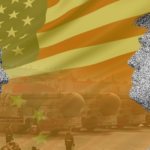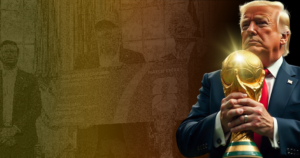What if the most ambitious, controversial idea floated at the UN could act as a counterweight to Israel’s vision of “Greater Israel”? When Colombian President Gustavo Petro called for an international army to liberate Palestine, the idea did more than provoke debate, it opened space to contest Israel’s expansionist trajectory, especially amid rhetoric of a “Greater Israel” that aspires to absorb more Palestinian land and influence beyond.
Petro’s Call: From Words to Action
Speaking before the UN General Assembly, Petro declared that “we need a powerful army of the countries that do not accept genocide”, inviting nations to unite their militaries and weapons in a common effort to liberate Palestine. In his phrasing, he referenced armies of Asia, Slavic states, and the Latin American legacies of Bolívar as potential participants in this international force. He framed his appeal not as mere rhetoric but as a moral obligation, condemning the genocide and accusing global institutions of having become complicit silence.
Petro’s demand emerges not in isolation: Colombia has recently adopted a staunch stance on Gaza. Earlier in 2024, it suspended arms purchases from Israel and severed diplomatic ties, accusing Israeli leadership of genocide, according to AP News. Under Petro’s direction, Colombia also joined South Africa’s case against Israel at the International Court of Justice and helped host the Bogotá summit of 32 nations to coordinate pressure on Israel. In that summit, states committed to diplomatic, economic, and legal measures to restrain Israel’s actions.
Strategic Leverage: An International Force as Deterrent
If mobilized under legitimate multilateral mandate, an international force directed at Gaza and the West Bank could impose immediate constraints on further Israeli deepening of occupation or annexation. The presence of foreign troops in contested zones might make aggressive territorial moves more costly, politically, militarily, and diplomatically. Rather than merely symbolic, this could shift Israel’s calculus about taking territory that does not rightfully belong to it under international law.
Such a force, designed with robust rules of engagement, civilian protection mandates, and oversight, could also serve as a buffer zone between Israeli forces and Palestinian population centers. It might enable humanitarian access, monitor ceasefires, and protect vulnerable neighborhoods from forced displacement. In a landscape where settler expansion and forced evictions are enacted under military cover, an intervening international force could deny safe space for those operations.
Furthermore, the psychological impact of armed international solidarity should not be underestimated. Petro’s call evokes a new narrative: that Palestinian liberation can be actively defended, not just diplomatically pleaded for. This narrative weakens Israel’s ability to frame opposition forces as isolated or purely rhetorical.
Framing the Idea: From Resistance to Norm Shift
Even if full deployment never occurs, the discourse shift itself is powerful. By asserting that armed international protection is conceivable, Petro reframes how global audiences view conflict intervention. The idea challenges sovereignty norms entrenched in the post‑Westphalian order, suggesting that when atrocity and territorial aggression arise, collective military response may be legitimate.
Against Israel’s “Greater Israel” aims, that is a counter‑narrative: one in which expansionism is contested not only through sanctions or resolutions but through the physical deterrent of international boots on the ground. It suggests that territorial conquest in the 21st century should no longer be politically risk‑free.
Additionally, regional and Global South states may gain confidence to explore analogous mechanisms in other contested conflicts. What starts as a Palestine project might evolve into a model for protecting sovereignty and resisting de facto occupations elsewhere.
Challenges and Preconditions: Legitimacy, Alliance, and Execution
Of course, to counter expansion, such a force would need legitimacy. Israel would almost certainly reject direct intervention without major diplomatic concessions or reversal. To overcome this, the force must be anchored in broad international consensus, ideally under UN auspices or via a General Assembly mechanism like “Uniting for Peace”, which seeks to bypass veto gridlock. Petro himself invoked that mechanism in his speech. But the historic record shows “Uniting for Peace” rarely results in authorized military operations.
The force would also require disciplined coordination: consensus on mandate, rules of engagement, chain of command, logistical support, funding, and accountability. Any perception of bias, unequal discipline, or collateral damage would be exploited to discredit the operation.
Moreover, Israel and its allies would likely resist with political, economic, or military pressure. The intervening states must be prepared for retaliation, including diplomatic backlash or proxy escalation. The chain of accountability must be clear: who arrests or courts violations committed by the deployed troops, especially in territories under dispute?
Toward Strategic Equilibrium or Escalation
If realized even partially, an international force could rebalance regional dynamics, at least temporarily buying time for diplomatic pressure, reconstruction, and political restructuring. It might force Israel to hesitate on unilateral annexations or settlement expansions. Over time, that breathing space could be used to consolidate international legal norms that affirm: territory cannot be acquired through force or demographic manipulation.
However, the risk of escalation remains significant. Any international military presence could be labeled by Israel and its allies as an act of aggression or illegal occupation, potentially triggering direct military confrontation or wider regional instability. The success of such a force would depend not only on its operational discipline but also on the political resolve of the states backing it. Crucially, it raises the question of whether these countries are willing, and able, to withstand the diplomatic, economic, and possibly military pressure that would likely come from the United States, which has historically provided unconditional political and military support to Israel. Equally important is how far the United States would go in defending Israel if this intervention were to materialize. Would it treat the international force as a threat to Israeli sovereignty and respond accordingly, or would it recalibrate its position in the face of growing global condemnation of Israeli actions in the occupied territories? The answer to that will determine whether such a force serves as a genuine check on expansionism, or becomes a flashpoint in a broader geopolitical confrontation.












